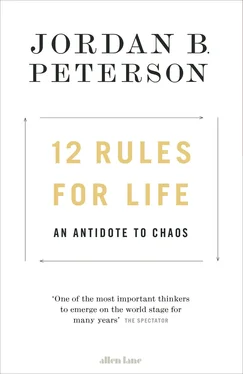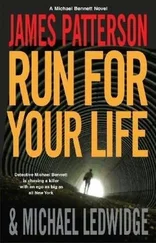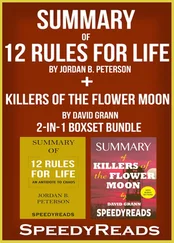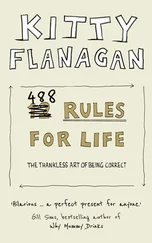I sloughed off a lot of my past. In a small town, everyone knows who you are. You drag your years behind you like a running dog with tin cans tied to its tail. You can’t escape who you have been. Everything wasn’t online then, and thank God for that, but it was stored equally indelibly in everyone’s spoken and unspoken expectations and memory.
When you move, everything is up in the air, at least for a while. It’s stressful, but in the chaos there are new possibilities. People, including you, can’t hem you in with their old notions. You get shaken out of your ruts. You can make new, better ruts, with people aiming at better things. I thought this was just a natural development. I thought that every person who moved would have—and want—the same phoenix-like experience. But that wasn’t always the case.
One time, when I was about fifteen, I went with Chris and another friend, Carl, to Edmonton, a city of six hundred thousand. Carl had never been to a city. This was not uncommon. Fairview to Edmonton was an eight-hundred-mile round trip. I had done it many times, sometimes with my parents, sometimes without. I liked the anonymity that the city provided. I liked the new beginnings. I liked the escape from the dismal, cramped adolescent culture of my home town. So, I convinced my two friends to make the journey. But they did not have the same experience. As soon as we arrived, Chris and Carl wanted to buy some pot. We headed for the parts of Edmonton that were exactly like the worst of Fairview. We found the same furtive street-vending marijuana providers. We spent the weekend drinking in the hotel room. Although we had travelled a long distance, we had gone nowhere at all.
I saw an even more egregious example of this a few years later. I had moved to Edmonton to finish my undergraduate degree. I took an apartment with my sister, who was studying to be a nurse. She was also an up-and-out-of-there person. (Not too many years later she would plant strawberries in Norway and run safaris through Africa and smuggle trucks across the Tuareg-menaced Sahara Desert, and babysit orphan gorillas in the Congo.) We had a nice place in a new high-rise, overlooking the broad valley of the North Saskatchewan River. We had a view of the city skyline in the background. I bought a beautiful new Yamaha upright piano, in a fit of enthusiasm. The place looked good.
I heard through the grapevine that Ed—Chris’s younger cousin—had moved to the city. I thought that was a good thing. One day he called. I invited him over. I wanted to see how he was faring. I hoped he was achieving some of the potential I once saw in him. That is not what happened. Ed showed up, older, balder and stooped. He was a lot more not-doing-so-well young adult and a lot less youthful possibility. His eyes were the telltale red slits of the practised stoner. Ed had had taken some job—lawn-mowing and casual landscaping—which would have been fine for a part-time university student or for someone who could not do better but which was wretchedly low-end as a career for an intelligent person.
He was accompanied by a friend.
It was his friend I really remember. He was spaced. He was baked. He was stoned out of his gourd. His head and our nice, civilized apartment did not easily occupy the same universe. My sister was there. She knew Ed. She’d seen this sort of thing before. But I still wasn’t happy that Ed had brought this character into our place. Ed sat down. His friend sat down, too, although it wasn’t clear he noticed. It was tragicomedy. Stoned as he was, Ed still had the sense to be embarrassed. We sipped our beer. Ed’s friend looked upwards. “My particles are scattered all over the ceiling,” he managed. Truer words were never spoken.
I took Ed aside and told him politely that he had to leave. I said that he shouldn’t have brought his useless bastard of a companion. He nodded. He understood. That made it even worse. His older cousin Chris wrote me a letter much later about such things. I included it in my first book, Maps of Meaning: The Architecture of Belief , published in 1999: “I had friends,” he said. [18062] Miller, G. (2016, November 3). Could pot help solve the U.S. opioid epidemic? Science . Retrieved from http://www.sciencemag.org/news/2016/11/could-pot-help-solve-us-opioid-epidemic
“Before. Anyone with enough self-contempt that they could forgive me mine.”
What was it that made Chris and Carl and Ed unable (or, worse, perhaps, unwilling) to move or to change their friendships and improve the circumstances of their lives? Was it inevitable—a consequence of their own limitations, nascent illnesses and traumas of the past? After all, people vary significantly, in ways that seem both structural and deterministic. People differ in intelligence, which is in large part the ability to learn and transform. People have very different personalities, as well. Some are active, and some passive. Others are anxious or calm. For every individual driven to achieve, there is another who is indolent. The degree to which these differences are immutably part and parcel of someone is greater than an optimist might presume or desire. And then there is illness, mental and physical, diagnosed or invisible, further limiting or shaping our lives.
Chris had a psychotic break in his thirties, after flirting with insanity for many years. Not long afterward, he committed suicide. Did his heavy marijuana use play a magnifying role, or was it understandable self-medication? Use of physician-prescribed drugs for pain has, after all, decreased in marijuana-legal states such as Colorado. [18063] Barrick, M. R., Stewart, G. L., Neubert, M. J., and Mount, M. K. (1998). “Relating member ability and personality to work-team processes and team effectiveness.” Journal of Applied Psychology, 83 , 377-391; for a similar effect with children, see Dishion, T. J., McCord, J., & Poulin, F. (1999). “When interventions harm: Peer groups and problem behavior.” American Psychologist, 54 , 755–764.
Maybe the pot made things better for Chris, not worse. Maybe it eased his suffering, instead of exacerbating his instability. Was it the nihilistic philosophy he nurtured that paved the way to his eventual breakdown? Was that nihilism, in turn, a consequence of genuine ill health, or just an intellectual rationalization of his unwillingness to dive responsibly into life? Why did he—like his cousin, like my other friends—continually choose people who, and places that, were not good for him?
Sometimes, when people have a low opinion of their own worth—or, perhaps, when they refuse responsibility for their lives—they choose a new acquaintance, of precisely the type who proved troublesome in the past. Such people don’t believe that they deserve any better—so they don’t go looking for it. Or, perhaps, they don’t want the trouble of better. Freud called this a “repetition compulsion.” He thought of it as an unconscious drive to repeat the horrors of the past—sometimes, perhaps, to formulate those horrors more precisely, sometimes to attempt more active mastery and sometimes, perhaps, because no alternatives beckon. People create their worlds with the tools they have directly at hand. Faulty tools produce faulty results. Repeated use of the same faulty tools produces the same faulty results. It is in this manner that those who fail to learn from the past doom themselves to repeat it. It’s partly fate. It’s partly inability. It’s partly … unwillingness to learn? Refusal to learn? Motivated refusal to learn?
People choose friends who aren’t good for them for other reasons, too. Sometimes it’s because they want to rescue someone. This is more typical of young people, although the impetus still exists among older folks who are too agreeable or have remained naive or who are willfully blind. Someone might object, “It is only right to see the best in people. The highest virtue is the desire to help.” But not everyone who is failing is a victim, and not everyone at the bottom wishes to rise, although many do, and many manage it. Nonetheless, people will often accept or even amplify their own suffering, as well as that of others, if they can brandish it as evidence of the world’s injustice. There is no shortage of oppressors among the downtrodden, even if, given their lowly positions, many of them are only tyrannical wannabes. It’s the easiest path to choose, moment to moment, although it’s nothing but hell in the long run.
Читать дальше












